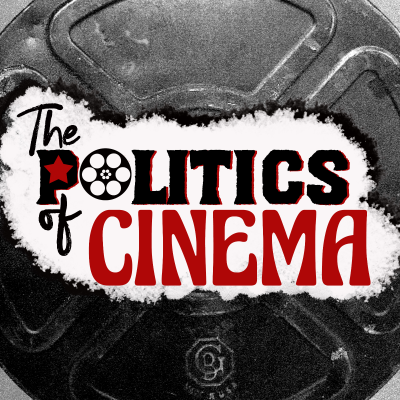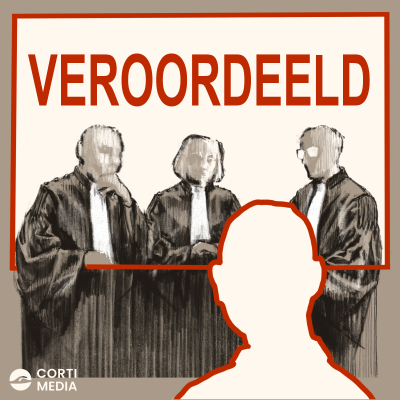
Politics of Cinema
Podcast door Aaron & Isaac
Tijdelijke aanbieding
2 maanden voor € 1
Daarna € 9,99 / maandElk moment opzegbaar.

Meer dan 1 miljoen luisteraars
Je zult van Podimo houden en je bent niet de enige
4.7 sterren in de App Store
Over Politics of Cinema
Films are cultural artifacts. There is a political and artistic message in every one and we're here to document. On each episode we pick a film; sometimes current and sometimes from the riches of world cinema’s 100+ year history, and take a deep dive into what the film is really saying about the world. Both overtly and covertly.
Alle afleveringen
100 afleveringenOn this episode we wanted to see a depiciton of people resisting fascim, so we're looking at an Robert Kramer's Ice (1970). It's our first American film in this series and the resistance we're seeing comes from a cell of New York Urban guerillas. They are fighting a dystopian version of the Nixon administration and its illegal war of imperialism in Mexico. Kramer's film is less a straightforward dystopia thriller than a raw document of the fractured leftist movements trying to organize within the belly of U.S. empire in the late 1960's. Kramer's handheld, on-location shooting style and use of non-actors offers a time capsule not just of American radicalism in 1970, but of filmmaking that rejects Hollywood polish for a Cassavetes style immediacy. Ice is uniquely embedded in the struggles it portrays; Kramer and his peers were activists themselves, not just chroniclers. The result is a film that forgoes easy allegory or procedural clarity and instead immerses viewers in the skepticism, paranoia, and possibility of revolutionary change at a time when history felt radically contingent. Follow us at: Patreon [https://www.patreon.com/politicsofcinema?fan_landing=true] / Instagram [https://www.instagram.com/politicsofcinema/] / Letterboxd [https://letterboxd.com/AaronSpears/] / Facebook [https://www.facebook.com/politicsofcinema]
On this episode, we're leaving the 1960's behind and jumping to South Korea in 1980. In Jang Hoon's A Taxi Driver (2017) we get a wild sampling of genres in a remarkably well balanced film. It's an action film. A single father supporting his daughter story. It’s dramatic and also quite goofy. It’s based on a actual events, but it’s also highly fictionalized. It documents political history while being oddly apolitical at times. And it's a journalism film too. International treasure Song Kang-ho stars as a Seoul cabbie who's transporting a German journalist to cover what is rumored to be a student protest. They both become unlikely witnesses and participants in the 1980 Gwangju Uprising and the massacre at the hands of governemnt forces. If you're up for a marathon of South Korean films, here is the five film lineup Aaron mentions that covers the politics and events from 1979-1981: * The Man Standing Next (2020) * The President’s Last Bang (2005) * 12.12: The Day (2023) * A Taxi Driver (2017) * The Attorney (2013) Follow us at: Patreon [https://www.patreon.com/politicsofcinema?fan_landing=true] / Instagram [https://www.instagram.com/politicsofcinema/] / Letterboxd [https://letterboxd.com/AaronSpears/] / Facebook [https://www.facebook.com/politicsofcinema]
On this episode, we're staying in the late sixties for one more film as we watch Jean-Pierre Melville's Army of Shadows [https://letterboxd.com/aaronspears/film/army-of-shadows/] (1969). A haunting portrayal of the French Resistance during the early days of World War II that serves as an existential reflection on what it really takes to fight an occupying force. Melville's muted color palette and precise framing underscore the suffocating atmosphere of occupied France, while also highlighting the moral complexity faced by those fighting fascism. The film presents a sobering look at the personal costs of opposing tyranny and forces the viewer to confront the often futile nature of resistance in the face of overwhelming oppression. The film was dismissed as Gaullist propaganda (which is fair) when it was first released in 1969, but received a much warmer welcome when it was restored and rereleased in 2006. It hits even harder in 2025 America. Follow us at: Patreon [https://www.patreon.com/politicsofcinema?fan_landing=true] / Instagram [https://www.instagram.com/politicsofcinema/] / Letterboxd [https://letterboxd.com/AaronSpears/] / Facebook [https://www.facebook.com/politicsofcinema]
On this episode, we're staying in the late sixties as we watch Luchino Visconti's The Damned [https://letterboxd.com/aaronspears/film/the-damned/] (1969). Following our exploration rising authoritarianism in Costa-Gavras' Z [https://letterboxd.com/film/z/] (1969) and reactionary Brazilian politics in Glauber Rocha's Entranced Earth [https://letterboxd.com/film/entranced-earth/] (1967), we're heading right into the Nazi den that is the von Essenbeck family in late 1930's Germany. A scathing critique of the German industrial elite's seduction by (and complicity in) the rise of Nazism, Visconti shows how a wealthy family's greed and moral corruption lead them to embrace fascism in order to maintain their social and economic status. Watching the family's willful, strategic cruelty, we see how the wealthy can easily transition from aristocratic privilege to supporting authoritarian rule. It's quite an illustration of how capitalism and fascism intertwine. If it's been a while since you've seen it, The Damned will resonate deeply with a revisit. On a lighter note, by watching some Visconti, Aaron finally understands how Isaac feels about Godard. Follow us at: Patreon [https://www.patreon.com/politicsofcinema?fan_landing=true] / Instagram [https://www.instagram.com/politicsofcinema/] / Letterboxd [https://letterboxd.com/AaronSpears/] / Facebook [https://www.facebook.com/politicsofcinema]
On this episode, we're heading to Brazil and discussing Glauber Rocha's Entranced Earth [https://letterboxd.com/film/entranced-earth/] (1967), a pivotal work of the Cinema Novo movement. Following our exploration of Costa-Gavras' Z [https://letterboxd.com/film/z/] (1969), we're delving into the turbulent world of Brazilian filmmaking in the wake of the 1964 military coup. Entranced Earth isn't just a film; it's a cinematic rebellion against political corruption and authoritarianism. Rocha's work, along with the broader Cinema Novo movement, redefined Brazilian cinema with its raw, politically charged narratives and innovative film techniques. We discuss how Rocha and the other Cinema Novo filmmakers, inspired by Italian Neorealism and the French New Wave, crafted a uniquely Brazilian cinematic language to confront social inequalities and spark critical discourse. Join us as we examine Rocha's "Aesthetic of Hunger" manifesto and discuss how Entranced Earth continues to resonate in our ongoing struggle against rising fascism and authoritarianism in the US and worldwide. Follow us at: Patreon [https://www.patreon.com/politicsofcinema?fan_landing=true] / Twitter [https://twitter.com/politicsofcine1] / Instagram [https://www.instagram.com/politicsofcinema/] / Letterboxd [https://letterboxd.com/AaronSpears/] / Facebook [https://www.facebook.com/politicsofcinema]

4.7 sterren in de App Store
Tijdelijke aanbieding
2 maanden voor € 1
Daarna € 9,99 / maandElk moment opzegbaar.
Exclusieve podcasts
Advertentievrij
Gratis podcasts
Luisterboeken
20 uur / maand

































